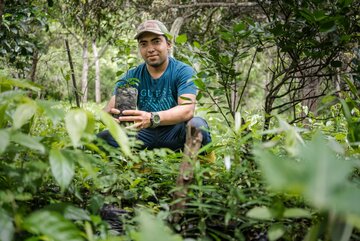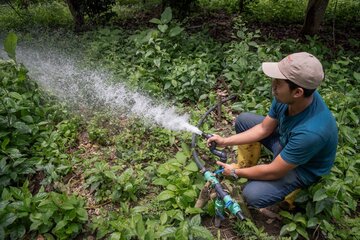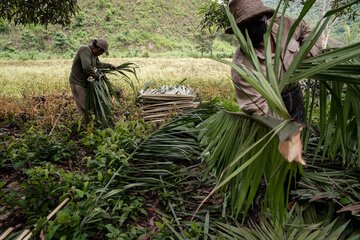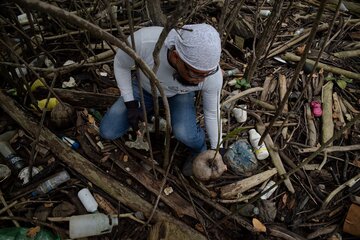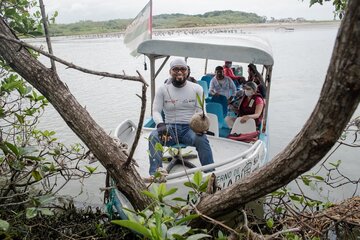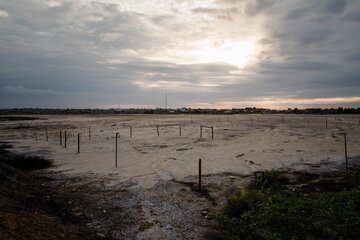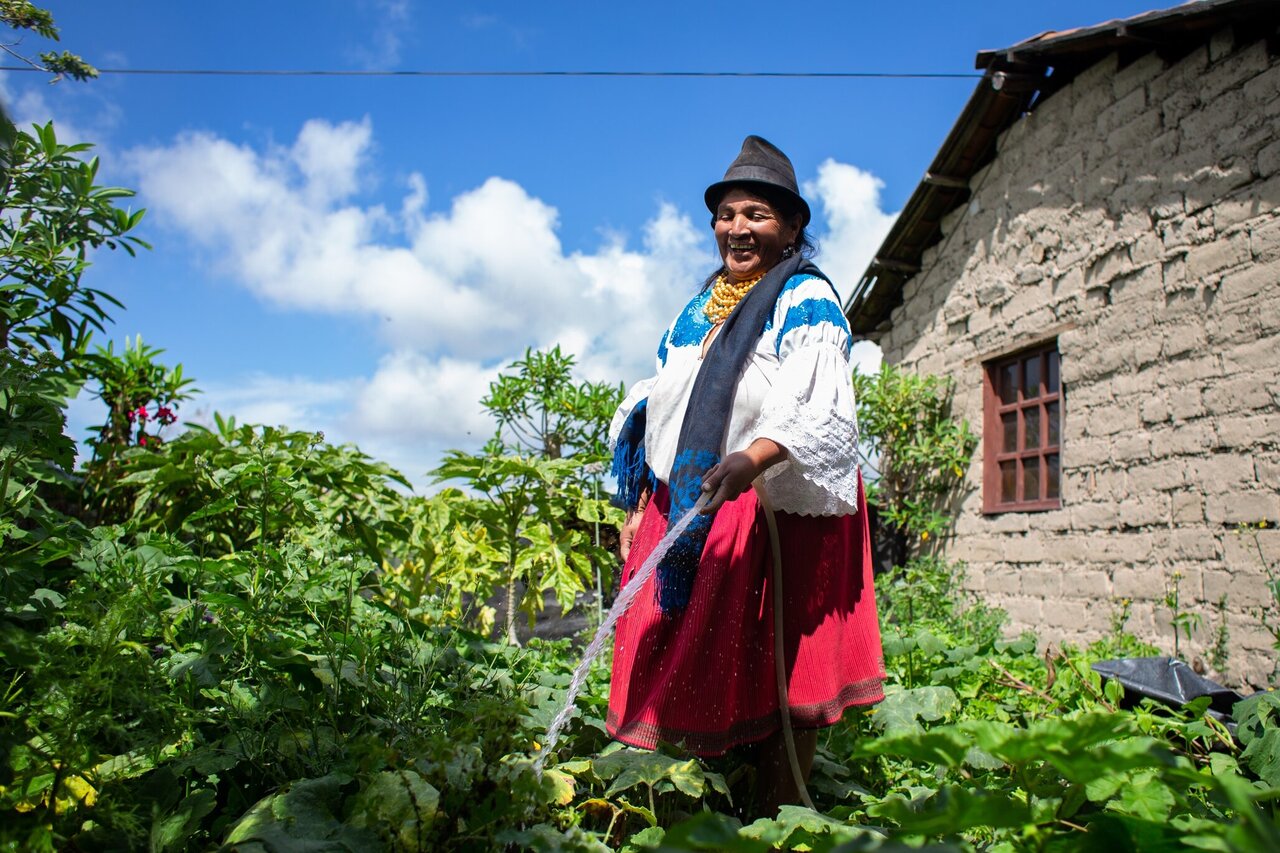World Health Day: For a healthy planet
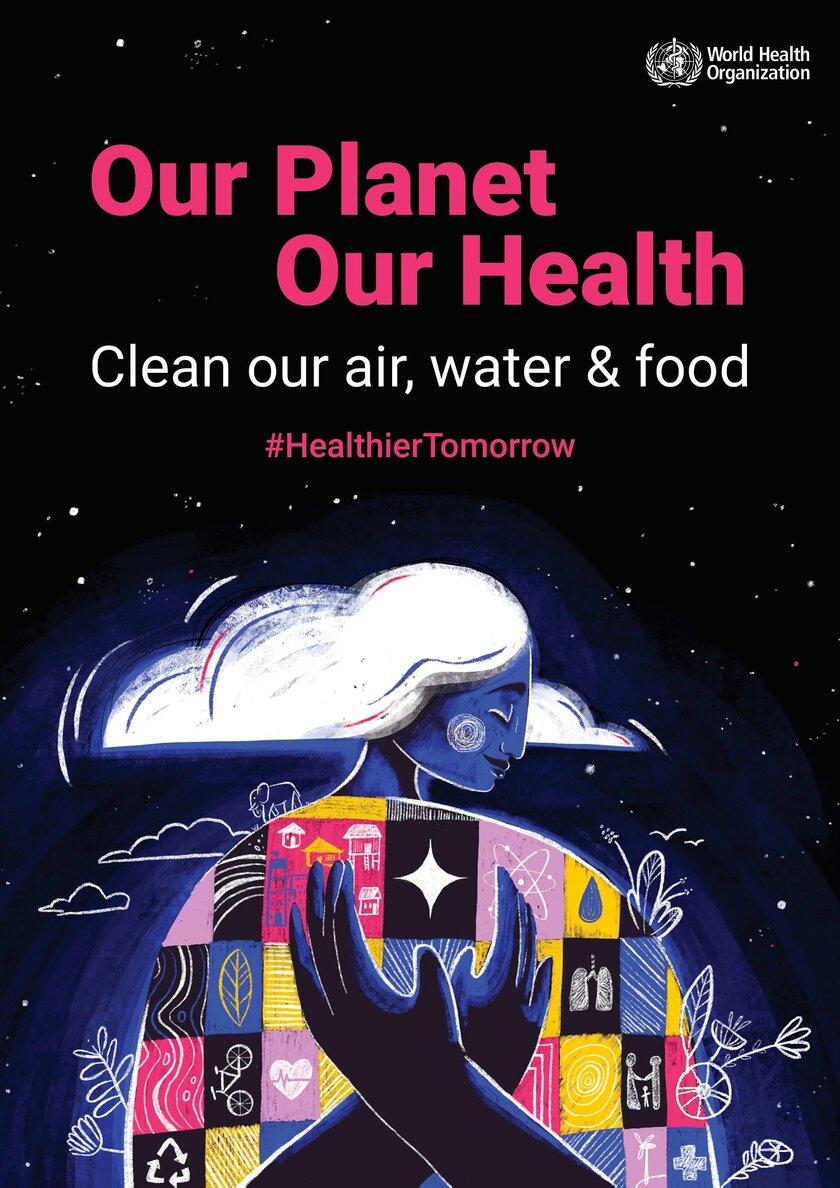
Berlin / Quito, 06 April 2022
Ongoing pollution and overexploitation of natural resources have enormous consequences on health worldwide. Contaminated water, polluted air and insufficient food affect the health of all of us. World Health Day draws attention to these global consequences.
According to the World Health Organization, more than 13 million deaths each year are due to environmental causes. Nine out of ten people breathe unclean air, 3.6 billion people lack safe toilets globally, which increases the risk of diseases enormously. The climate crisis is currently the most dangerous factor: water shortages, poor harvests and the need to flee because of a lack of livelihoods have a direct impact on the health and well-being of entire communities.
It is therefore important to stabilise and adapt these basics, and to raise awareness. For example, in Ecuador, together with our partner Heifer, we support coastal communities in growing healthy food or protecting mangrove and dry forests, which are essential for a good and healthy life.
Creating sustainable livelihoods
Bruno Alejandro Medina is also aware of this. The 20-year-old biology student is a member of the agroecology school in his community of El Tillal in Manabí province. From his grandfather's stories, he knows that the village's name comes from the old trees called "Tillo", which, however, hardly exist today. The forest wealth of his community are now only faded childhood memories. Deforestation, lack of water and the use of chemicals in harvesting have taken their toll on the landscape on the north coast of Ecuador.
Bruno would like to stop this process. In addition to planting new trees, the community has installed a new and economical irrigation system to enable harvests on small areas even during the dry season. "The whole region resembles a desert in summer. The water that was available before was mostly too salty to consume or use for agriculture," says Bruno. The community-built water system now provides a remedy. Bruno describes his community El Tillal with words like solidarity and respect. He believes that they have important tasks to fulfil in the field of environmental protection. That is why he chose the profession he is currently studying, he says.
Volunteering to remove rubbish from mangroves
The mangrove forests on the Pacific coast of Ecuador are a natural filter between the ocean, rivers and the land. But for many years, tons of rubbish from the rivers have been caught there, which has left a lasting impression on Angel Garcia. The 43-year-old lifeguard gets on his bike every weekend and rides 60 kilometres to Las Gilces, where he volunteers to clean mangrove swamps. "I would never have thought that there was so much rubbish beyond the beaches. Life is born in the mangroves. Many species reproduce here and then migrate to the sea," Garcia says.
He then founded a group of young people whom he trained in swimming and underwater cleaning of the mangroves. He regularly organises clean-up campaigns that generate several tonnes of waste, mainly plastic, over the course of a year. Even though the physical strain of his volunteer work is sometimes heavy, Angel says he always enjoys helping others. "Volunteers are born, not made," Garcia says. He and his group are a shining example of how people are becoming aware of the ongoing destruction of the environment and are actively doing something about it.
The project is financially supported by the German Federal Ministry for Economic Cooperation and Development (BMZ).
Colombia: Unique ecosystem at risk
In Colombia, our local partner organisation A-kasa supports the people in sustainably securing their livelihoods, which are closely linked to the state of the magroves and their ecosystem.
